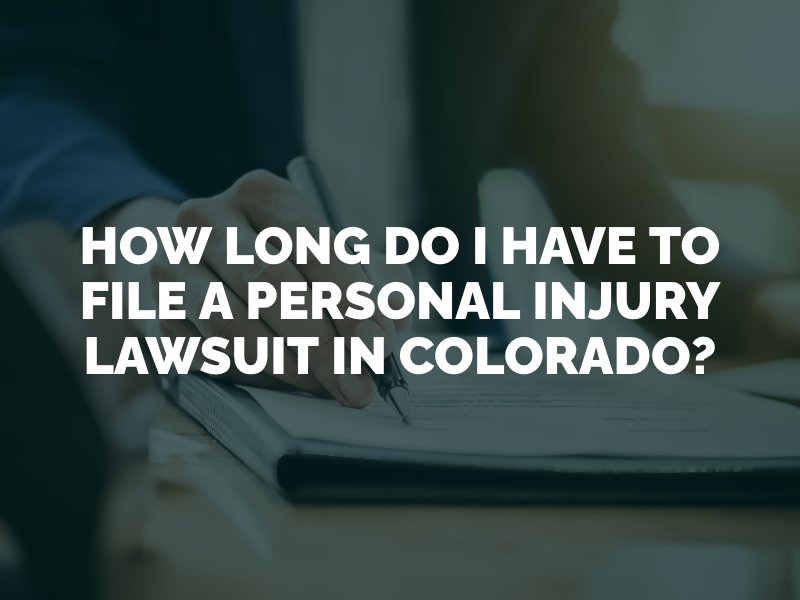A personal injury accident is an unexpected disaster that can change your life. In Colorado, you have the chance to hold the responsible party accountable to recover compensation for your injuries and losses. This can help you rebuild your life. To do so, however, you must file a claim against the at-fault party within Colorado’s statute of limitations.

A statute of limitations is a law that restricts the amount of time in which an injured accident victim has to file a claim. Statutes of limitations exist to keep the civil justice system just for both sides. Without a time limit, a victim could wait as long as he or she wanted to bring a claim. This could leave the threat of a lawsuit hanging over the defendant’s head indefinitely. It could also allow the victim to file after important evidence has disappeared, limiting the defendant’s ability to defend him or herself. Colorado has differing statutes of limitations based on the type of claim.
Based on Colorado’s general personal injury statute of limitations, you have two years to file most claims. If you were injured in a slip and fall accident, for example, you would have two years from the date of your fall to file a personal injury lawsuit. You have an additional year to file if you were in a car accident. Several important exceptions to the rule exist. It is important to consult with a Denver personal injury lawyer about your case right away to meet your deadline.
Not all personal injury cases come with the same deadlines. Some cases have tolling, or the extension of the statute of limitations, based on circumstances outside of the claimant’s control. If the defendant is also involved in a criminal case for the accident, for example, the clock may not start ticking until the conclusion of the criminal case. A few other exceptions to the rule may also affect your case.
It is critical to act quickly if you wish to file a personal injury lawsuit in Colorado. The courts are strict in obeying the state’s statutes of limitations. If you miss your deadline to file, you will most likely lose the right to hold the defendant responsible for your injuries and damages. The courts will refuse to hear your case if filed past the time limit. Even if the courts accept your case, the defendant could use the missed statute of limitations against you to argue for case dismissal. Call a personal injury lawyer as soon as possible after an accident in Colorado to ensure you meet your deadline.